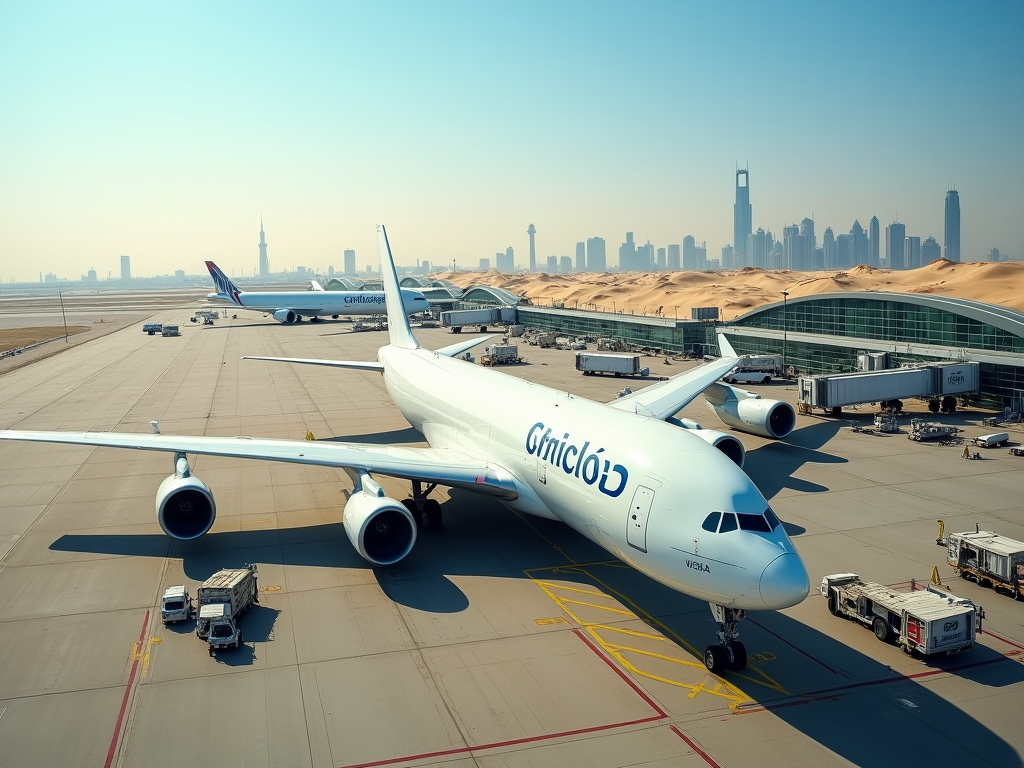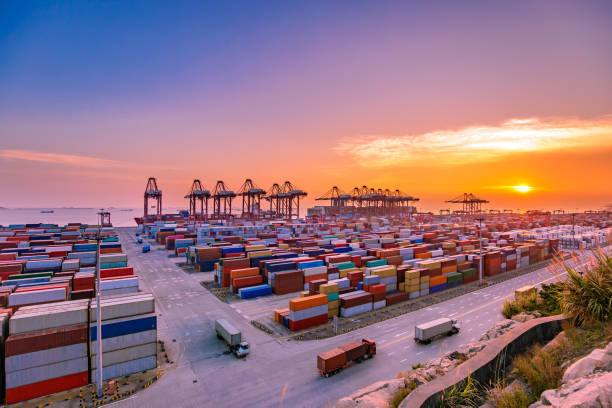The Role of Dubai in Facilitating Global Supply Chain Management
Dubai has emerged as a vital hub in global supply chain management, leveraging its strategic geographical location, world-class infrastructure, and progressive trade policies. As businesses around the world look for efficient ways to streamline their logistics, Dubai offers an attractive solution that not only enhances connectivity but also ensures seamless operations across continents. The city’s port facilities, airports, and logistic parks have made it a central pivot for trade, enabling companies to reduce costs and improve delivery times. This article explores the various aspects in which Dubai is pivotal in global supply chains, highlighting its infrastructure, technological innovations, and strategic advantages.
Strategic Geographical Location

One of the primary factors contributing to Dubai’s role in global supply chain management is its strategic geographical location. Situated at the crossroads of Europe, Asia, and Africa, Dubai serves as a gateway to various markets, enabling businesses to reach over 2.5 billion consumers within a direct flight range. This accessibility allows companies to optimize their logistics and distribute goods efficiently. Additionally, Dubai’s proximity to emerging markets, coupled with its open trade policies, enhances its attractiveness for multinational corporations. The benefits of its location can be summarized as follows:
- Accessibility: Shortened transport distances to major markets.
- Market Reach: Direct access to lucrative emerging markets in the Middle East, Africa, and Asia.
- Trade Agreements: Favorable trade agreements reduce tariffs and open new avenues for expansion.
Advanced Infrastructure

Dubai boasts state-of-the-art infrastructure that significantly contributes to its role in global supply chain management. The city is home to one of the world’s busiest ports, Jebel Ali Port, which handles millions of containers annually, making it a cornerstone of maritime trade. Additionally, Dubai International Airport is a key player in air cargo, regularly ranked among the world’s top airports for cargo volume. The efficiency of this infrastructure is further enhanced by:
- Integrated logistics zones that facilitate warehousing and distribution.
- High-quality road and rail networks that ensure swift transportation of goods within the region.
- Advanced customs procedures that enable faster clearance times.
In recent years, Dubai has committed to integrating technological innovations into its supply chain management processes. This forward-thinking approach not only boosts efficiency but also enhances transparency and traceability throughout the supply chain. Key technological initiatives include:
- Blockchain Technology: Enhances transparency and security in transactions.
- Smart Logistics Solutions: Utilization of IoT and AI for real-time tracking and predictive analysis.
- Automated Warehousing: Implementation of robotics and automation systems to streamline operations.
This technology-driven transformation helps businesses make informed decisions, reducing operational risks and ultimately improving customer satisfaction.
Regulatory Environment and Business Incentives
Another significant advantage for supply chain operations in Dubai is its favorable regulatory environment. The city has established several free zones that encourage foreign investment, offering 100% ownership and tax exemptions. These incentives are designed to attract international businesses, thereby fostering a dynamic trade ecosystem. Furthermore, Dubai’s regulatory framework is highly conducive to logistics operations, characterized by:
- Streamlined business registration processes.
- Transparent legal frameworks protecting foreign investments.
- Government support for innovation and sustainability in logistics.
Conclusion
Dubai plays an instrumental role in facilitating global supply chain management through its strategic location, advanced infrastructure, technological innovations, and favorable regulatory environment. As businesses continue to expand their operations internationally, the city remains a crucial player in enhancing logistics efficiency, reducing operational costs, and ultimately providing better service to customers worldwide. By continuously improving its offerings and investing in future technologies, Dubai is poised to cement its status as a global logistics hub in the years to come.
Frequently Asked Questions
1. Why is Dubai considered a global logistics hub?
Dubai is considered a global logistics hub due to its strategic location, advanced infrastructure, and favorable trade policies that facilitate efficient movement of goods between continents.
2. What are the main advantages of using Dubai for supply chain operations?
The main advantages include reduced transportation costs, access to emerging markets, state-of-the-art logistics facilities, and a tax-friendly business environment.
3. How does technology impact supply chain management in Dubai?
Technology enhances supply chain management by improving visibility, increasing efficiency through automation, and providing data-driven insights for better decision-making.
4. What role do free zones play in Dubai’s supply chain management?
Free zones in Dubai allow foreign companies to operate with full ownership, tax exemptions, and streamlined business processes, enhancing its attractiveness as a logistics hub.
5. How does Dubai’s infrastructure support global trade?
Dubai’s infrastructure, including its port and airport facilities, efficient road and rail networks, and integrated logistics zones, supports global trade by ensuring swift and reliable transportation of goods.


